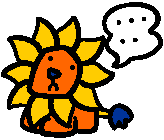
---------------------------------------------------------
#03 権利とはそもそも何ですか?
実際にはどういう権利を動物に認めようというのですか?
---------------------------------------------------------
「権利」という概念は西洋の自由主義的な伝統の土台と言えるもの
である事は間違いないのですが、動物の権利をめぐる議論においては
常に論争や混乱の種になってきました。
動物が権利を持つという概念に対する反論として良く出されるのが
権利の由来に関する疑問です。そうした議論は例えば以下の様なもの
です。
「そうした権利はどこからやって来るのだ?あなた達は神と意思
を通わす特別な手段を持っていて神が動物には権利があると言
うのを聞いたとでも言うのか?法律が動物の権利を認めている
わけではないではないか。権利と言うものは人間が認めてはじ
めて存在するものではないのか?」
「権利」と言う概念は慎重に分析されるべきものである事は間違い
ありません。そしてまた「自然権」と言う概念が哲学的難問を伴うも
のである事も確かです。更に話をややこしくしているのが法的権利と
倫理的な権利の混同です。
こうした反論に対抗するひとつのやり方としては一応その主張を受
け入れた上で次の様に議論する事です:人間に権利があると考えるの
がおかしくないのだったら動物に権利があると考えてもおかしくない
のじゃないかと。
ヘンリー・ソルトは以下の様に書いています
人間以外の動物にも「権利」があるのだろうか? もし人間に
権利があると言うのならそれは間違いなくある。この最初の章
で私はそのことを明らかしたいと思う。<中略>
「権利」という言葉の適用をめぐっては議論が分かれている。
しかしその適用の是非を決める根本的原則があるのかどうかと
いう事はほとんど問題になっていない。そうした意味において
「権利」をめぐる議論というのは言葉の解釈をめぐる机上の議
論に過ぎず、何ら実質的成果を生むものではない。
従って私はここで人間が、ハーバート・スペンサー(*1)の定義
で言うところの「権利」を持っているものと仮定する。もし読
者の誰かからこの「権利」という言葉の使い方に関して抗議を
受けた場合には、私としては、もしもっと適当な言葉が現われ
れば喜んでそちらの言葉を使わせて頂くと言うしかない。とり
あえず今、私達が考える事をせまられているのは次の問題だ:
「もし人間に権利があると言うのなら動物にも権利があるのだ
ろうか?」
この議論は納得の行くものですが、それでもなお、権利と言う概念
を人間に適用することにさえ同意しない懐疑論者に対しては無力です。
しかし幸いなことにこうした泥沼の議論につながるレトリックに対
抗できてかつ妥当性もあり、考え方の基礎となり得る明瞭な「権利」
の解釈があります。
それは「権利」というものが道徳的規範の裏がえしであるという考
え方です。もし私達がある者に対して道徳的にしてはならない行為が
あったとすれば、その者にはその行為をされない「権利」があるとい
う考え方です。例えば私達の道徳が人を殺すべきではないと命ずるの
であれば人には私達に殺されない権利があるという事です。
この権利の解釈は実際問題としても一般に理解され支持され得るし
直感的に分かりやすいものです(そしてもちろんこの様に解釈された
権利は適正な立法措置を通して法的権利として成分化することも可能
です)
ここで注意しなければならないのは動物に権利があるという意見は
(それには十分な根拠がありますが)動物が人間の持つ権利をすべて
持つべきだと、ほのめかしているわけでも要求しているわけでもない
という事です。あるいはまた人間の方も動物の持つ権利をすべて持っ
ているわけではないという事です。
人間が持つ選挙権という権利について考えてみましょう(これまで
の見方に沿って見るとこの権利はそれぞれの人が、自らの生活に関わ
る行為に対する影響力を持つ事を保証すべきだとする道徳規範に由来
するものだと言えます)
動物には行為を合理的に考えたり意思表示したりする能力も民主主
義や選挙の意味を理解する能力もありません。つまり動物には投票を
する能力がないのです。従って道徳は動物に投票させる事を命じはし
ませんので動物は選挙権を持たないという事になります。
鶏は羽を広げたり、ばたばたさせる事に対して強い生理的な欲求を
持っています。この事を同様に考えるとどうなるでしょうか;そうで
すね、心ある人なら鶏にそうさせてやる事が道徳の命ずるところだと
感じるでしょう。従って鶏には羽をばたばたさせる権利があると言え
るのです。当然の事ながらこの権利を人間にも拡大する必要などあり
ません。
こうして見てくると動物や人間が持っている権利というものはそれ
ぞれが持つ関心や能力によって決まってくるものと言えます。動物は
人間同様、生きる事や苦痛を避ける事、それに幸福を追求する事にさ
え関心を持っています。道徳の命ずるところにより動物は人間同様、
そうした事に対する権利がある事になります。人間の手による搾取や
虐待をから免れるという事によって動物はその権利を行使したことに
なるわけです。
DG
参照:
#1、
#2
訳注)*1. スペンサー(1820-1903) :
イギリスの哲学者・社会学者。進化論に基づいて
社会の進化発展を説明し、宇宙・生物・道徳・社
会にわたる総合的・有機的進歩の法則を主張した。

...............



-----------------------
#3 What exactly are rights and what rights can we give animals?
-----------------------
Despite arguably being the foundation of the Western liberal tradition,
the concept of "rights" has been a source of controversy and confusion
in the debate over AR. A common objection to the notion that animals have
rights involves questioning the origin of those rights. One such argument
might proceed as follows:
Where do these rights come from? Are you in special communication
with God, and he has told you that animals have rights? Have the
rights been granted by law? Aren't rights something that humans
must grant?
It is true that the concept of "rights" needs to be carefully explicated.
It is also true that the concept of "natural rights" is fraught with
philosophical difficulties. Complicating things further is the confusion
between legal rights and moral rights.
One attempt to avoid this objection is to accept it, but argue that
if it is not an obstacle for thinking of humans as having rights, then it
should not be an obstacle for thinking of animals as having rights. Henry
Salt wrote:
Have the lower animals "rights?" Undoubtedly--if men have. That is
the point I wish to make evident in this opening chapter... The
fitness of this nomenclature is disputed, but the existence of some
real principle of the kind can hardly be called in question; so that
the controversy concerning "rights" is little else than an academic
battle over words, which leads to no practical conclusion. I shall
assume, therefore, that men are possessed of "rights," in the sense
of Herbert Spencer's definition; and if any of my readers object to
this qualified use of the term, I can only say that I shall be
perfectly willing to change the word as soon as a more appropriate
one is forthcoming. The immediate question that claims our attention
is this--if men have rights, have animals their rights also?
Satisfying though this argument may be, it still leaves us unable to
respond to the sceptic who disavows the notion of rights even for humans.
Fortunately, however, there is a straightforward interpretation of
"rights" that is plausible and allows us to avoid the controversial
rights rhetoric and underpinnings. It is the notion that a "right" is the
flip side of a moral imperative. If, ethically, we must
refrain from an act performed on a being, then that being can be said to
have a "right" that the act not be performed. For example, if our ethics
tells us that we must not kill another, then the other has a right not to
be killed by us. This interpretation of rights is, in fact, an intuitive
one that people both understand and readily endorse. (Of course, rights so
interpreted can be codified as legal rights through appropriate
legislation.)
It is important to realize that, although there is a basis for speaking
of animals as having rights, that does not imply or require that they
possess all the rights that humans possess, or even that humans possess all
the rights that animals possess. Consider the human right to vote. (On the
view taken here, this would derive from an ethical imperative to give humans
influence over actions that influence their lives.) Since animals lack the
capacity to rationally consider actions and their implications, and to
understand the concept of democracy and voting, they lack the capacity to
vote. There is, therefore, no ethical imperative to allow them to do so,
and thus they do not possess the right to vote.
Similarly, some fowls have a strong biological need to extend and flap
their wings; right-thinking people feel an ethical imperative to make
it possible for them to do so. Thus, it can be said that fowl have the right
to flap their wings. Obviously, such a right need not be extended to humans.
The rights that animals and humans possess, then, are determined by their
interests and capacities. Animals have an interest in living, avoiding pain,
and even in pursuing happiness (as do humans). As a result of the ethical
imperatives, they have rights to these things (as do humans). They can
exercise these rights by living their lives free of exploitation and
abuse at the hands of humans.
DG
SEE ALSO: #1-#2




